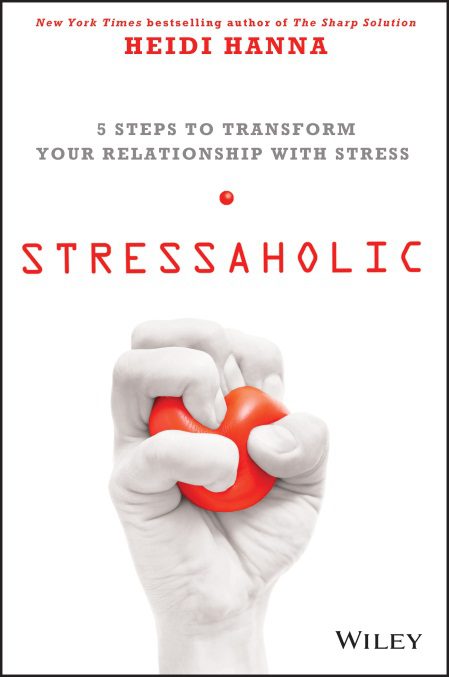
Stress is an unfortunate part of life, especially when work deadlines build up and one project seems to follow another.

But stress doesn’t have to rule your life; rather, you can find ways to build your resilience in such a way that you can combat stress when it attacks, said Heidi Hanna, Ph.D. and author of Stressaholic: Five Steps to Transform Your Relationship with Stress (Wiley; January 2014).
Stress isn’t going anywhere. What we can build is our own ability to bounce back and not burn out, Hanna said. You can fight stress from the inside out.
So how does this performance coach maintain her own sense of bliss? Here are some ideas on how to maintain your cool under pressure, boost your productivity and improve your health, all at the same time.
- Create a rhythm. Engage with your work and then disengage. Take strategic breaks. These are not lazy times, Hanna said. What you’re actually doing is recharging everying, Hanna said. You can work for an hour, take a 10-minute break and then work again effectively for another hour. Oh, and checking Facebook? That’s not a break. Hanna suggests brain games instead. Being on the computer all day isn’t great for you.
- Put your breaks into a schedule. Force yourself to pull out of your logical mind and into one that is more reflective. Having those regular times of quiet or thoughtfulness is good for mind, body and spirit. Take a walk. Listen to music. Read for pleasure. Build these times into your business day to maximize your breaks.
- Move more. Studies show that people who sit longer have higher rates of poor health for lots of reasons, Hanna said. Use a headset so you can move around the room while on phone calls. If you have a meeting, suggest to your co-worker that you discuss the issue during a walk. See if your workplace will install a desk that allows you to stand from time to time. The more oxygen you take in, the more clearly you’ll think.
- Snack every now and then. People can go hours without eating because stress actually decreases your appetite, Hanna said. Eating something every three or hours keeps your blood sugar up. Don’t think about reaching for another cup of coffee, either. That extra caffeine isn’t going to cut it. That just creates a viscous cycle of deprivation, Hanna notes. Look for nuts, yogurt or protein instead.
- Change your mindset. Play music that frees your mind. Look for life lessons. Have an attitude of gratitude. Instead of looking at everything as a threat which causes stress try to find ways to make the experience pleasant. Then, the occasional stress can help you grow. You’ll see it as a challenge instead of a threat, Hanna said.



